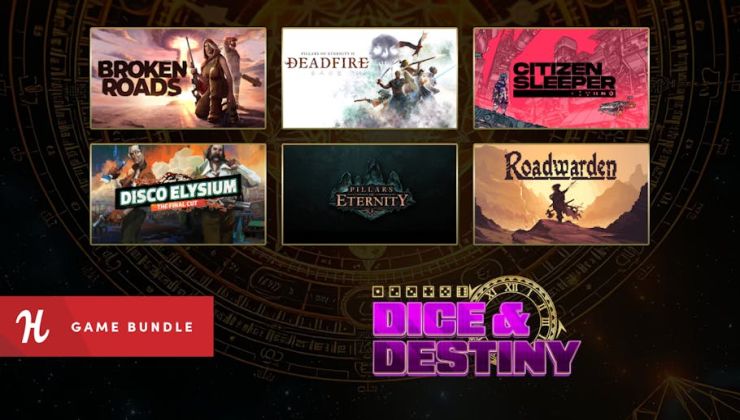According to Statcounter, which should be taken with a pinch of salt of course like any sampling, the Linux share on the desktop hit nearly 4% in December 2023. Last month was a record too and a clear trend over time, as going back a couple of years, it was rarely coming close to 2% but now it's repeatedly nearing 4% so it's quite a good sign overall.
The latest from Statcounter shows for all of 2023 below:
- January - 2.91%
- February - 2.94%
- March - 2.85%
- April - 2.83%
- May - 2.7%
- June - 3.07%
- July - 3.12%
- August - 3.18%
- September - 3.02%
- October - 2.92%
- November - 3.22%
- December - 3.82%
Looking at December it shows Windows rising too, with macOS dropping down. If we actually take ChromeOS directly into the Linux numbers for December 2023 the overall number would actually be 6.24% (ChromeOS is Linux after all).
Here's how just Linux looks over time on Statcounter since early 2009 until now:
Seems like a pretty clear trend over time don't you think? Nice to see this happening elsewhere, just like we've seen over years with the Steam Survey.
You can see their stats over here.
Conspiracy Mode; Have you ever wondered if one of the main reasons Office and it's ilk are moving to cloud based systems is due to Linux finally getting to the point where it can run stand alone Office? I'm pretty sure the latest version runs fine there now... (I still don't know why macOS got a port of Office, and Linux never did. You'd think MS would want Office on all the platforms they could to make more money... but then again, they figure they can force people to also buy Windows... greedy Mofos).Funny you should mention that. Microsoft Word has had an official version for Macintosh since initial release in 1983. It predates even Windows; it was MS-DOS back then. Microsoft Excel was released for Macintosh two years before a Windows version appeared. So you could say one of the reasons is Linux didn't actually exist back then.
This was a few years after Microsoft abandoned their UNIX OS, [XENIX](https://en.wikipedia.org/wiki/Xenix).
I've gotten Microsoft Office to work under CrossOver but Word was the only one that worked decently. Powerpoint was very crash-happy. Excel was fine, but I didn't use it much. I wonder if the Affinity Suite will be usable and stable in Wine before Microsoft Office is...
Anyway, nearly 4%. I've never seen a number that high for Linux desktop use. And while OK, the latest month was a big jump, that general trend looks really nice. Not only is it an upward slope, but it seems to me that it's slightly upward curving. We are starting to get into traditional MacOS territory; one or two more percentage points and Linux becomes something general software companies may start paying some attention to.
It's interesting to see what happens in January and February. December means more people at home and fewer in the office. This jump could mean that corporations' OS use is biased more towards windows, and home computers more towards Linux.
Linux hits nearly 4% desktop user share on Statcounter
[My reaction to winning the OS Wars after all these years, Mein Führer...! I can valk!](https://www.youtube.com/watch?v=zYhClSHeGNE)
Last edited by ElectricPrism on 4 Jan 2024 at 4:53 am UTC
MS Write was also available for the Atari ST (I think that's what it was called before they changed it to Word). I don't think it was ever available for the Amiga though.Conspiracy Mode; Have you ever wondered if one of the main reasons Office and it's ilk are moving to cloud based systems is due to Linux finally getting to the point where it can run stand alone Office? I'm pretty sure the latest version runs fine there now... (I still don't know why macOS got a port of Office, and Linux never did. You'd think MS would want Office on all the platforms they could to make more money... but then again, they figure they can force people to also buy Windows... greedy Mofos).Funny you should mention that. Microsoft Word has had an official version for Macintosh since initial release in 1983. It predates even Windows; it was MS-DOS back then. Microsoft Excel was released for Macintosh two years before a Windows version appeared. So you could say one of the reasons is Linux didn't actually exist back then.
This was a few years after Microsoft abandoned their UNIX OS, [XENIX](https://en.wikipedia.org/wiki/Xenix).
I've gotten Microsoft Office to work under CrossOver but Word was the only one that worked decently. Powerpoint was very crash-happy. Excel was fine, but I didn't use it much. I wonder if the Affinity Suite will be usable and stable in Wine before Microsoft Office is...
Ha, had to look that up, as the Machintosh wasn't available in 1983.. Word was available on Xenix first. Classic Mac got it in 1985, Atari ST got it in 1988, OS/2 in 1989 and Windows (also 1989). The wikipedia article states that you can run Word before 2013 on Linux via Wine.
Microsoft pissed me off back in '97 after I bought 'Home Essentials' because I needed a word processor (with aspirations of becoming a writer). Paid $100 bucks for it (which was a ton of money for my crappy job at the time) and then a month later they released Office '97, with no upgrade path...
These days, I think I'll start doing my writing with Atari Works. :P
MS Write was also available for the Atari ST (I think that's what it was called before they changed it to Word). I don't think it was ever available for the Amiga though.Amiga users didn't need MS Write. We had the clearly superior WordPerfect. :P
Typed a bunch of my school essays on my Amiga 500 and printed them out with a very noisy Star LC-10 dot matrix printer.
Ha, so true. I've been looking into just setting up an old PC with Corel Linux and WP8 for Linux (last version that was native). I sort of got it working on a modern Debian, but the nostalgia of old KDE and everything sounds tempting!MS Write was also available for the Atari ST (I think that's what it was called before they changed it to Word). I don't think it was ever available for the Amiga though.Amiga users didn't need MS Write. We had the clearly superior WordPerfect. :P
Typed a bunch of my school essays on my Amiga 500 and printed them out with a very noisy Star LC-10 dot matrix printer.
Out of all the platforms out there, the Amiga seems to be the only one that never had an Office suite made by (or at least bought by) the owner. Like there are a couple of them, but they were all made by third party companies. Atari had Works, Mac bought Claris, and even the Apple IIGS has a version of that. It's just one more checkbox in the 'Commodore didn't properly support the Amiga'.
These days, I think I'll start doing my writing with Atari Works. :P
Joke aside, look into LaTeX! Such a relief not getting bogged down with formatting vs WYSIWYG.
Last edited by ShabbyX on 5 Jan 2024 at 8:43 am UTC
Well, sure, web applications work on everything. The New Java. I'm sure that's what's at least partially motivating Adobe to port Photoshop to the Web in some limited form.I'm willing to accept this if programs built for ChromeOS work on Linux distributions like Arch, Ubuntu, Fedora, and openSUSE. Is that the case?That way round is trivial: ChromeOS uses web apps. The other way round is harder, but ChromeOS has been able to run Linux applications in a container for around five years. Work is ongoing to make Steam and Steam games on ChromeOS a thing.
I've never owned a Chromebook—surely there are native programs on there not accessible from the web? I know CrossOver has its own ChromeOS version. I know the main point is the web, but since you can install Steam and play Steam games, that's at least one program you can use.
But the way you phrased it makes me think native ChromeOS programs don't actually work on Linux
If Adobe comes out with its entire suite for ChromeOS (namely After Effects) but it doesn't work on Linux, I would not consider ChromeOS a Linux distribution, because it being "based on Linux" would mean nothing for the effective market share of Linux.
maybe not directly but it could have some indirectly, like having better support for game engines like unity or unreal as result of then having an similiar base.
or more games using vulkan
Well, sure, web applications work on everything. The New Java. I'm sure that's what's at least partially motivating Adobe to port Photoshop to the Web in some limited form.I'm willing to accept this if programs built for ChromeOS work on Linux distributions like Arch, Ubuntu, Fedora, and openSUSE. Is that the case?That way round is trivial: ChromeOS uses web apps. The other way round is harder, but ChromeOS has been able to run Linux applications in a container for around five years. Work is ongoing to make Steam and Steam games on ChromeOS a thing.
I've never owned a Chromebook—surely there are native programs on there not accessible from the web? I know CrossOver has its own ChromeOS version. I know the main point is the web, but since you can install Steam and play Steam games, that's at least one program you can use.
But the way you phrased it makes me think native ChromeOS programs don't actually work on Linux
If Adobe comes out with its entire suite for ChromeOS (namely After Effects) but it doesn't work on Linux, I would not consider ChromeOS a Linux distribution, because it being "based on Linux" would mean nothing for the effective market share of Linux.
i agree but it would have some indirect effects, like more game engines supporting linux, or better support for linux (since the base is the same), or more games supporting vulkan/with better vulkan support, or more developers learning it.
Who makes up these percentages? People checking statcounter.com to see who's checking statcounter.com?just like ads pay people to host their ads, they put javascript code in thirdy party sites (probably paying then to host it) so they can get this date, or purchase this info from someone who gather this data.
Nope. Until last year ChromeOS the UI and ChromeOS the browser were exactly the same binary. The change last year to separate them was to make ChromeOS more Linux-like.This is mind-boggling. And makes me all kinds of confused. I skimmed the Ars article at the time and figured it could only be good.
They dabbled with having web-apps-but-packaged-differently for a while but dropped that (as Google tends to do) a few years ago in favour of just-web-apps.
Is the Steam program for ChromeOS just some kind of weirdly packaged webapp pretending not to be a webapp? Can it not run normal binaries? What about CrossOver? On the one hand, so long as web environment integrity is not a thing, that's great for compatibility for all OSes. Rising tides and all that.
But why would you purposely GIMP your OS like that?? It's one thing to be web-first, but web-only is something else...
(with apologies to the current GIMP maintainers)
The thing that ChromeOS can do that desktop Linux can't (but which Windows can) is run Android applications. But people generally don't think of Android (or Windows) as a desktop Linux OS.I remember there being something that could do that on Linux. Waydroid?
1)security, you only have to deal with one attack vector.
2)convincing developers to target the web seems to be way easier than convincing then to target linux (not to mention linux is not a single target)
3)google had an google "control" over the internet, more people using it would mean more space for then to fill with ads or to collect data.
4)??
5)profit
MS Write was also available for the Atari ST (I think that's what it was called before they changed it to Word). I don't think it was ever available for the Amiga though.Looks like I misread "Word for Mac was released in 1985. Word for Mac was the first graphical version of Microsoft Word." as meaning, "Word was released for Mac first, and in 1983". Don't ask me how!
Ha, had to look that up, as the Machintosh wasn't available in 1983.. Word was available on Xenix first. Classic Mac got it in 1985, Atari ST got it in 1988, OS/2 in 1989 and Windows (also 1989). The wikipedia article states that you can run Word before 2013 on Linux via Wine.
Microsoft pissed me off back in '97 after I bought 'Home Essentials' because I needed a word processor (with aspirations of becoming a writer). Paid $100 bucks for it (which was a ton of money for my crappy job at the time) and then a month later they released Office '97, with no upgrade path...
These days, I think I'll start doing my writing with Atari Works. :P
I do all my writing in Neovim...what else could fit the bill?
Amiga users didn't need MS Write. We had the clearly superior WordPerfect. :PWordPerfect is still around under Corel's management. It had its latest release only three years ago.
Typed a bunch of my school essays on my Amiga 500 and printed them out with a very noisy Star LC-10 dot matrix printer.
Amiga users didn't need MS Write. We had the clearly superior WordPerfect. :PWordPerfect is still around under Corel's management. It had its latest release only three years ago.
Typed a bunch of my school essays on my Amiga 500 and printed them out with a very noisy Star LC-10 dot matrix printer.
Yeah I know. There were even native Linux versions at some point. Never used or saw them myself, but I know they existed.
I had a boxed copy, back in the day, of Corel Linux. Even came with a little rubber penguin. Sadly, they only supported it for about a year and a half; then Xandros bought it. Then they proceeded to die off...Amiga users didn't need MS Write. We had the clearly superior WordPerfect. :PWordPerfect is still around under Corel's management. It had its latest release only three years ago.
Typed a bunch of my school essays on my Amiga 500 and printed them out with a very noisy Star LC-10 dot matrix printer.
Yeah I know. There were even native Linux versions at some point. Never used or saw them myself, but I know they existed.
But Corel had been, for the longest time, the largest attempt at actually making a Desktop / user friendly Linux, specifically marketed toward getting people off of Windows... actually backed by a well known company that did other stuff.
Closest we actually have to that now would be the Steam Deck in desktop mode... everyone else are companies where Linux is their core business. And even then, they don't really push it as a Desktop.
Ha, I tried to find a client for macOS for LaTeX... could I find a free one? no, why would that exist on a Mac? I truly hate that platform for how everyone feels they should charge for software. Reminds me of how the Amiga was back in the day. Maybe I'm just far too spoiled with all the open source stuff!These days, I think I'll start doing my writing with Atari Works. :P
Joke aside, look into LaTeX! Such a relief not getting bogged down with formatting vs WYSIWIG.
I had a boxed copy, back in the day, of Corel Linux. Even came with a little rubber penguin.Well, now I want one.
I haven't taken a look at ChromeOS at all, but I'm sure the Window Manager is just a Wayland compositor.
As pointed out in the [Ars](https://arstechnica.com/gadgets/2023/08/google-is-finally-separating-chrome-from-chromeos-for-easier-updates/) article, ChromeOS replaced X11 with their own "Freon" back in 2016. As I understand it, it required different graphics drivers from the GPU vendors. It's only very recently that they switched to Wayland.
Google has also been very careful not to allow hackers to run away with their devices. Any normal dev will just wax ChromeOS and load Ubuntu onto the device without a second of hesitation. Instead they control how you get access to the linux side of things; see Crostini. To me it looks like Google wants to sell devices at a loss so they can saturate the market and out compete on price. Mean while make their money harvesting data and delivering ads. "You're getting a device with security in mind. *wink*"you cant say "linux is easy to use" and say "it can run this game, just follow this tutorial on wineHQ" at the same sentence.
one of the issues with linux is that we tried to market it as something easy to use, and something that can play games at the same time, but if you wanted to do both, you had to suffer, i remember following some tutorials to play some games, end up in a rabbit hole too big and giving up on the game, normal people would give up on linux instead.
my worst nightmare was tera, 5 days to install (for some reason the installer took forever to download on linux) then, followed all the tutorial right, and... it didnt worked! the worst part was that i was not willing to delete the 50GB files, i had hope to make it work someday to not have wasted 5 days for nothing...
oh, did i mentioned that i had to try 2 because i dared to use the computer at the same time that this 5 days download took place and it crashed the installer and i had to restart?
another nightmare was games that some people were able to install using an combination of gpu vendor (eg: ati) + distro + wine version number+version of the game, but if any of those change then people werent able to run (eg: only run on ati, only run on nvidia, only run on ubuntu, only run on fedora, only run on wine 1.7.53, only run in the version 1.2 of the game)
good luck with that...
i think google was smarther , consoles cant do nearly as much as an linux device like the steamdeck can, but they dont get the bad reputation of linux for being harder to use because they can only do one thing and do it well.
dont get me wrong i dont think steam deck should be closed as an console, the way it is, is perfect, but that was only possible thanks to proton and the valve enormous effort in QA.
Conspiracy Mode; Have you ever wondered if one of the main reasons Office and it's ilk are moving to cloud based systems is due to Linux finally getting to the point where it can run stand alone Office? I'm pretty sure the latest version runs fine there now... (I still don't know why macOS got a port of Office, and Linux never did. You'd think MS would want Office on all the platforms they could to make more money... but then again, they figure they can force people to also buy Windows... greedy Mofos).Funny you should mention that. Microsoft Word has had an official version for Macintosh since initial release in 1983. It predates even Windows; it was MS-DOS back then. Microsoft Excel was released for Macintosh two years before a Windows version appeared. So you could say one of the reasons is Linux didn't actually exist back then.
This was a few years after Microsoft abandoned their UNIX OS, [XENIX](https://en.wikipedia.org/wiki/Xenix).
I've gotten Microsoft Office to work under CrossOver but Word was the only one that worked decently. Powerpoint was very crash-happy. Excel was fine, but I didn't use it much. I wonder if the Affinity Suite will be usable and stable in Wine before Microsoft Office is...
I use Affinity Designer and Affinity Photo for my web design and development work on Linux. It's very complicated to set up, but as of recently, it works fantastically. Instructions: https://codeberg.org/Wanesty/affinity-wine-docs
For my rather simple usage of it (basic photo adjustments and cropping images en masse), it's been very stable and everything is working as expected.
Oh, that's awesome to know! Thanks for pointing this out to me, but I've actually known about this repo and the forum posts for over a year now. I've just been putting off actually building the custom version of Wine, haha. I hadn't heard great things from the posts about how stable it was so I was wondering if it was worth the effort. I resolved to do it this week while I had some free time.Conspiracy Mode; Have you ever wondered if one of the main reasons Office and it's ilk are moving to cloud based systems is due to Linux finally getting to the point where it can run stand alone Office? I'm pretty sure the latest version runs fine there now... (I still don't know why macOS got a port of Office, and Linux never did. You'd think MS would want Office on all the platforms they could to make more money... but then again, they figure they can force people to also buy Windows... greedy Mofos).Funny you should mention that. Microsoft Word has had an official version for Macintosh since initial release in 1983. It predates even Windows; it was MS-DOS back then. Microsoft Excel was released for Macintosh two years before a Windows version appeared. So you could say one of the reasons is Linux didn't actually exist back then.
This was a few years after Microsoft abandoned their UNIX OS, [XENIX](https://en.wikipedia.org/wiki/Xenix).
I've gotten Microsoft Office to work under CrossOver but Word was the only one that worked decently. Powerpoint was very crash-happy. Excel was fine, but I didn't use it much. I wonder if the Affinity Suite will be usable and stable in Wine before Microsoft Office is...
I use Affinity Designer and Affinity Photo for my web design and development work on Linux. It's very complicated to set up, but as of recently, it works fantastically. Instructions: https://codeberg.org/Wanesty/affinity-wine-docs
For my rather simple usage of it (basic photo adjustments and cropping images en masse), it's been very stable and everything is working as expected.
Might as well give it a shot! Cheers for the reminder. Affinity Photo is the only one I use (still need AE and iD now and again) but it should keep more of my workflow on Linux!
Right, so native applications for ChromeOS can run on Linux, because native applications for ChromeOS are written for Linux, meant to be used in containers.Yes, from the binaries perspective, this is the most correct description.
Well, I guess ChromeOS is a Linux distribution then.
ChromeOS actually IS Linux for ARM, since some developers disected it some years ago and extracted a widevine*.so (Chrome DRM) library from it and hacked this very same binary library back to RPi Linux(es), and thus enabled DRM content streaming (Spotify, Netflix, etc...) on ARM Linux on RPi.










 How to set, change and reset your SteamOS / Steam Deck desktop sudo password
How to set, change and reset your SteamOS / Steam Deck desktop sudo password How to set up Decky Loader on Steam Deck / SteamOS for easy plugins
How to set up Decky Loader on Steam Deck / SteamOS for easy plugins
See more from me